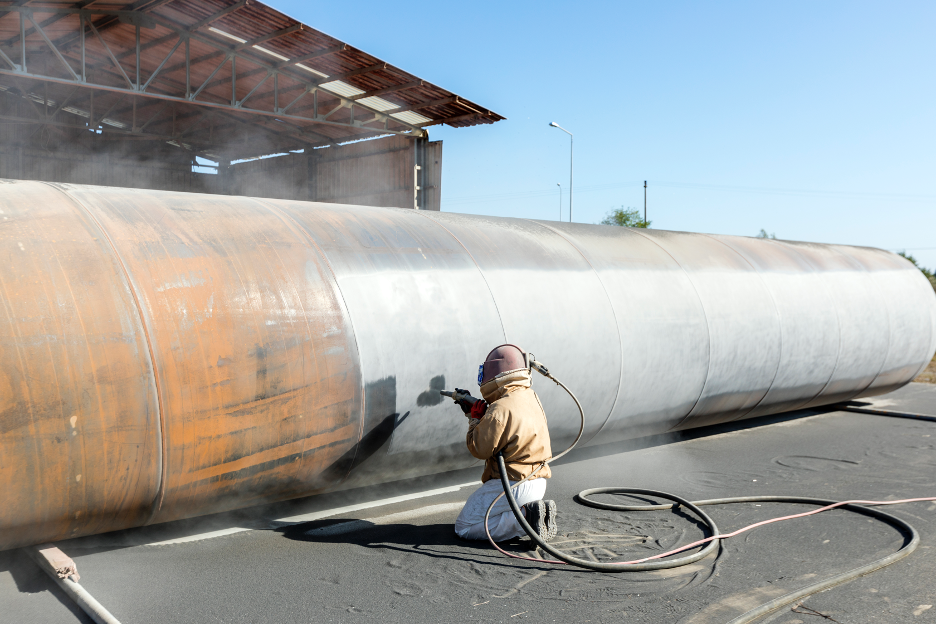Coal slag is a byproduct of the coal combustion process, and it has become a valuable resource in various industries. This gritty, sand-like material is widely used as an abrasive in sandblasting, as a filler in asphalt and concrete, and as a roofing granule. Its unique properties, such as its high density and angular shape, make it a versatile and cost-effective material for a wide range of applications.
However, the handling and use of coal slag should be done with caution to protect both yourself and the environment. This coal slag supplier in New Orleans, Louisiana is going to share some tips below that will help promote safe practices and educate our customers on the proper handling and storage of this material.
The Importance of Safety When Using Coal Slag
Coal slag is a hazardous material that can pose significant risks to workers if not handled and stored correctly. Exposure to coal slag can lead to a variety of health issues, including respiratory problems, skin irritation, and eye damage. Additionally, improper disposal of coal slag can have negative environmental impacts, such as contamination of soil and water sources.
By prioritizing safety and following best practices, you can ensure the well-being of your workers, protect the environment, and maintain the efficiency of your operations. Investing in safety measures not only reduces the risk of accidents and incidents, but it also demonstrates your commitment to responsible and sustainable business practices.
Safety Tips for Handling and Storing Coal Slag
Here are some safety tips for handling and storing coal slag.
- Proper Personal Protective Equipment (PPE): A knowledgeable coal slag supplier in New Orleans, Louisiana will always recommend wearing the appropriate PPE, including hard hats, safety glasses, gloves, and respiratory protection, when handling these materials.
- Dust Control Measures: It’s wise to implement effective dust control measures, such as wetting the material, using enclosed conveyor systems, and maintaining proper ventilation in work areas.
- Secure Storage: Store coal slag in designated, well-ventilated areas away from high-traffic zones. Use sturdy, leak-proof containers or silos to prevent spills and minimize dust exposure.
- Labeling and Signage: Clearly label storage areas and containers with appropriate hazard warnings and safety instructions to inform workers and visitors.
- Training and Education: Provide comprehensive training to your workers on the safe handling, storage, and disposal of coal slag. Regularly review and update your safety protocols to keep up with industry best practices.
- Spill Response Plan: Develop and regularly practice a spill response plan to quickly contain and clean up any accidental releases of coal slag.
- Proper Disposal: Ensure that all coal slag waste is disposed of in accordance with local and federal regulations, using licensed waste management services or approved disposal facilities.
Personal Protective Equipment (PPE) for Working with Coal Slag
Proper personal protective equipment (PPE) is essential when handling coal slag to minimize the risks of exposure and injury. Your coal slag supplier in New Orleans, Louisiana will recommend wearing the following:
- Respiratory Protection: Use NIOSH-approved respirators or dust masks to prevent inhalation of fine dust particles.
- Eye Protection: Wear safety goggles or face shields to protect your eyes from flying debris and dust.
- Hand Protection: Wear sturdy, cut-resistant gloves to protect your hands from abrasions and cuts.
- Foot Protection: Wear steel-toed boots with slip-resistant soles to prevent injuries from falling objects and slips.
- Skin Protection: Wear long-sleeved shirts and pants to cover your skin and prevent direct contact with the material.
Looking for a Coal Slag Supplier in New Orleans, Louisiana?
Are you searching for the highest quality coal slag for your blasting need? If so, look no further than Black Diamond Abrasives. As the most trusted coal slag supplier in New Orleans, Louisiana, we are committed to providing our customers with high-quality materials and ensuring the safety of their operations. Contact us today to get started.

